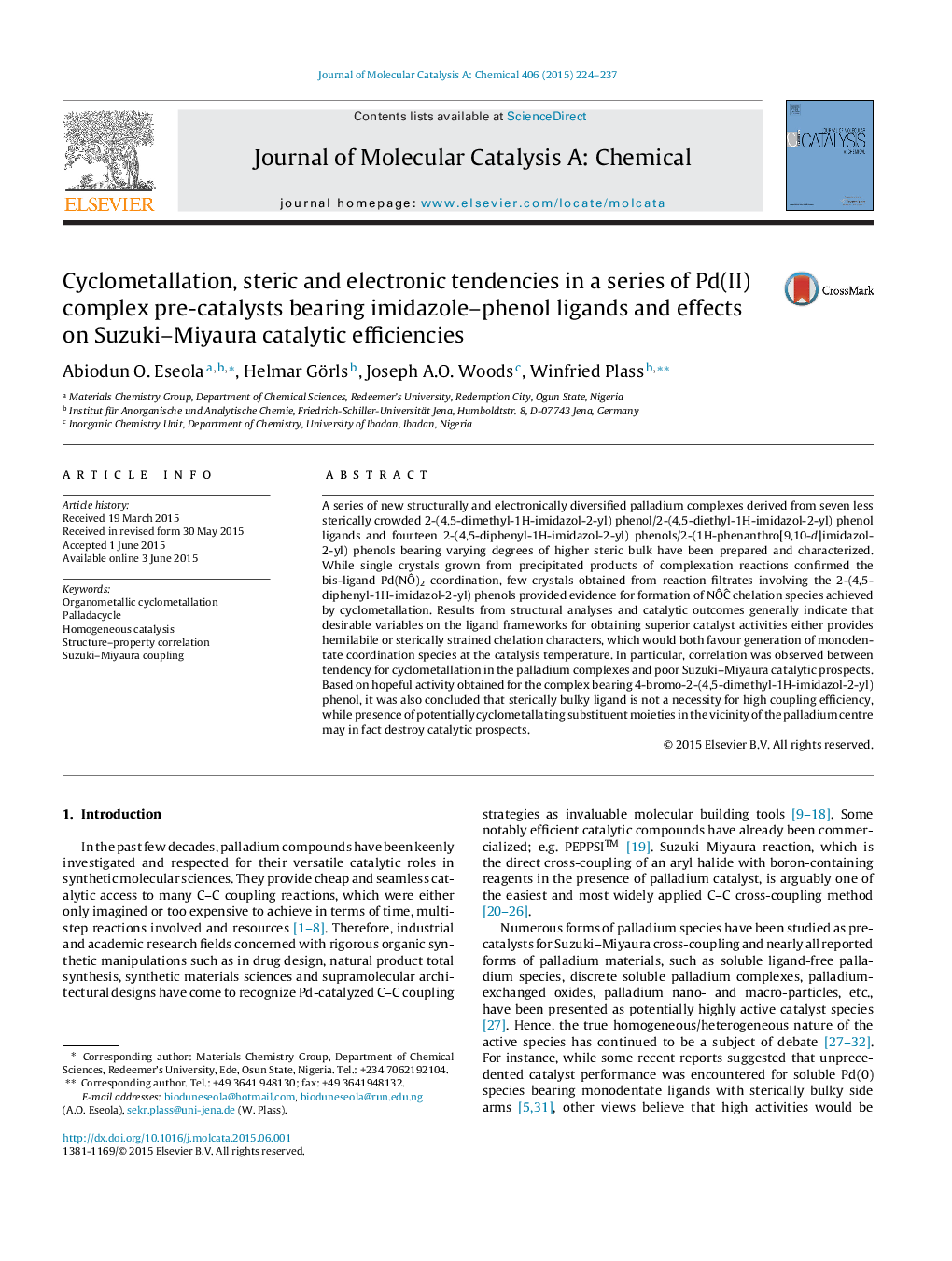| کد مقاله | کد نشریه | سال انتشار | مقاله انگلیسی | نسخه تمام متن |
|---|---|---|---|---|
| 64974 | 48376 | 2015 | 14 صفحه PDF | دانلود رایگان |

• Structural evidences were obtained for unfavourable cyclometallation of phenyls.
• Ligand substituent electronic effects seem to affect cyclometallation tendency.
• Results suggest that cyclometallation caused poor catalytic prospects.
• Ligands with hemilabile or sterically distorted donors gave good catalytic outcome.
• Bulky ligand framework is not a necessity for high coupling efficiency.
• Catalyst developers should avoid coordinating carbons in the vicinity of palladium.
A series of new structurally and electronically diversified palladium complexes derived from seven less sterically crowded 2-(4,5-dimethyl-1H-imidazol-2-yl) phenol/2-(4,5-diethyl-1H-imidazol-2-yl) phenol ligands and fourteen 2-(4,5-diphenyl-1H-imidazol-2-yl) phenols/2-(1H-phenanthro[9,10-d]imidazol-2-yl) phenols bearing varying degrees of higher steric bulk have been prepared and characterized. While single crystals grown from precipitated products of complexation reactions confirmed the bis-ligand Pd(N^O)2 coordination, few crystals obtained from reaction filtrates involving the 2-(4,5-diphenyl-1H-imidazol-2-yl) phenols provided evidence for formation of N^O^C chelation species achieved by cyclometallation. Results from structural analyses and catalytic outcomes generally indicate that desirable variables on the ligand frameworks for obtaining superior catalyst activities either provides hemilabile or sterically strained chelation characters, which would both favour generation of monodentate coordination species at the catalysis temperature. In particular, correlation was observed between tendency for cyclometallation in the palladium complexes and poor Suzuki–Miyaura catalytic prospects. Based on hopeful activity obtained for the complex bearing 4-bromo-2-(4,5-dimethyl-1H-imidazol-2-yl) phenol, it was also concluded that sterically bulky ligand is not a necessity for high coupling efficiency, while presence of potentially cyclometallating substituent moieties in the vicinity of the palladium centre may in fact destroy catalytic prospects.
Figure optionsDownload high-quality image (218 K)Download as PowerPoint slide
Journal: Journal of Molecular Catalysis A: Chemical - Volume 406, September 2015, Pages 224–237